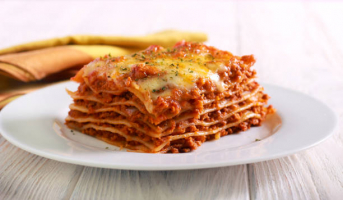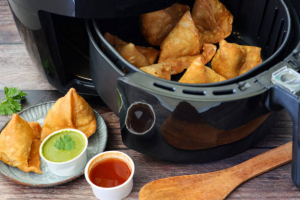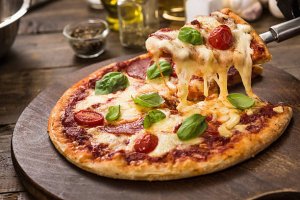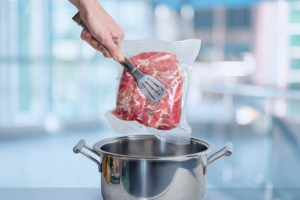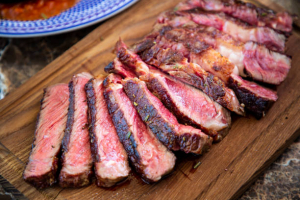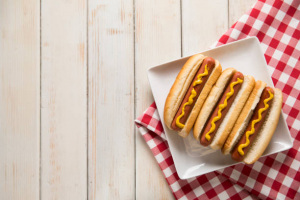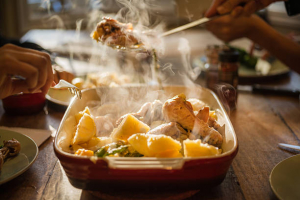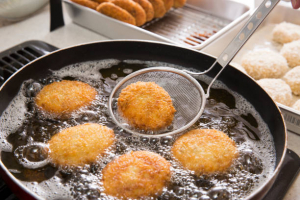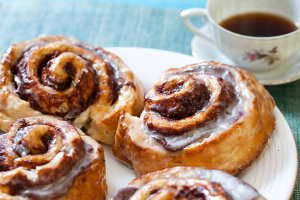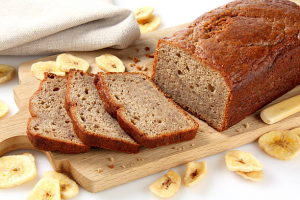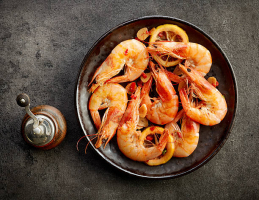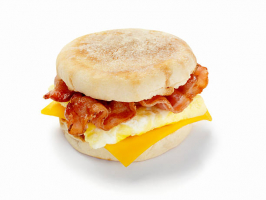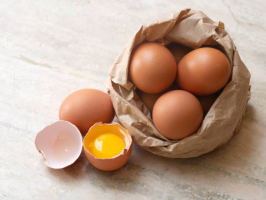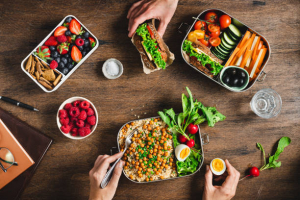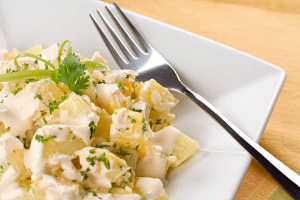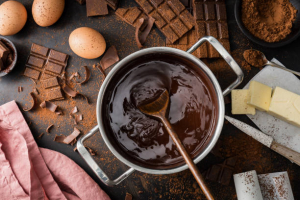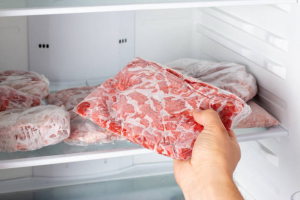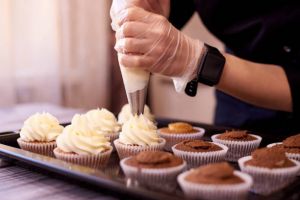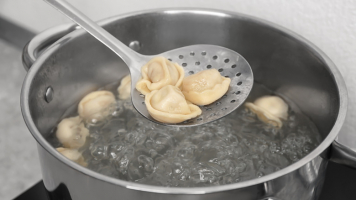Top 11 Biggest Mistakes Everyone Makes With Frozen Food
Food freezing appears to be a simple task. All you have to do is put the food you want to freeze in the freezer, correct? While freezing food isn't difficult, ... read more...there are a few things to keep in mind to ensure you're doing it correctly. Everyone, believe it or not, makes several mistakes with frozen food. Continue reading and be cautious when cooking frozen food.
-
When many of you take food out of the freezer to thaw, you may think it's a good idea to put it on the counter. Yes, there appears to be some logic to it. Allowing it to thaw at room temperature, on the other hand, is simple and convenient because you simply let it do its thing without exerting too much effort. This is an ideal thawing method for anyone with a hectic work schedule who wants to thaw something while doing something else or leaving the house for a few hours.
However, according to the USDA, thawing frozen perishable food in this manner is not the best option and should never be left out on the counter for more than two hours. Once food enters the "danger zone" (a temperature range of 40-140 degrees Fahrenheit), bacteria can begin to grow, making it unsafe to eat. Thawing frozen foods in the refrigerator or in ice water is always preferable.
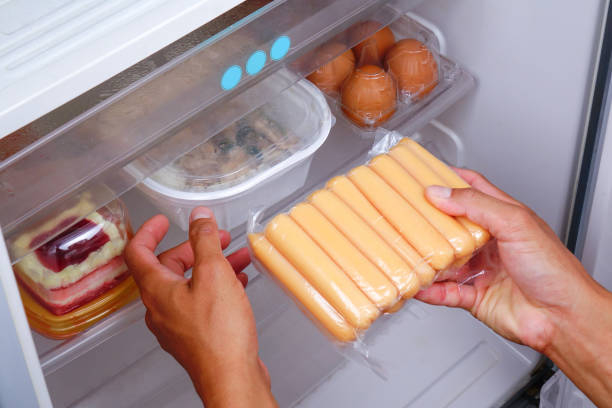
Leaving food out on the counter at room temperature 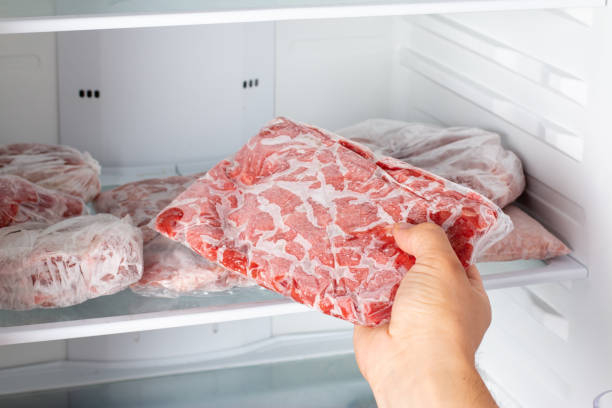
Leaving food out on the counter at room temperature -
You're probably aware that frozen foods take a little longer to cook than fresh foods. However, you may be unaware of how important thoroughly cooking your frozen foods is for your health. According to Urban Citizen, frozen foods should be treated similarly to raw foods in terms of cooking preparation because both can carry bacteria and, if not fully cooked, can be extremely harmful to your health.
To avoid food-borne illnesses while cooking frozen (or raw) foods, make sure they are thoroughly cooked. This means that chicken and all ground meats, including beef and lamb, should be cooked at 165°F, whereas steak and pork can be cooked at 145°F. When it comes to cooking foods properly, make sure your frozen meats (or any other items in the freezer) haven't been recalled so you're not cooking anything you shouldn't be eating.
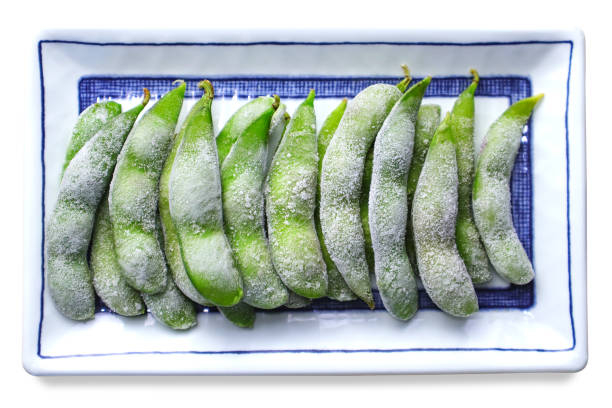
Frozen foods aren't cooked thoroughly 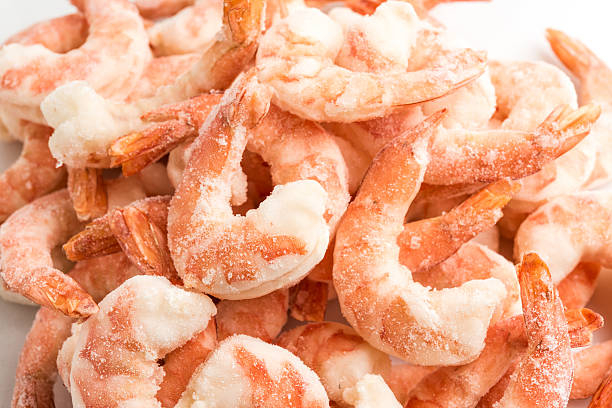
Frozen foods aren't cooked thoroughly -
You're craving some ice cream, but when you open the freezer door, you notice it's now covered in freezer burn. What a total mood killer. Nobody wants to take frozen food out of the freezer and find icy crystals on it. When you store your food correctly, you can help prevent this, ensuring that your ice cream, vegetables, or whatever else is present remains at its best for consumption.
According to Whirlpool, freezer burn occurs when cold, dry air strikes frozen foods, which typically occurs when they are not packaged and stored correctly or are left in the freezer for an extended period of time. If your ice cream has freezer burn, it could be because the top was not securely fastened to the carton. Always double-check that everything is properly sealed before putting it in the freezer.
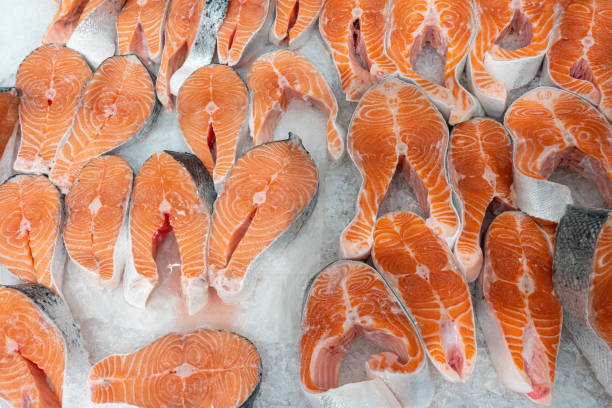
Foods aren't properly stored and have freezer burn 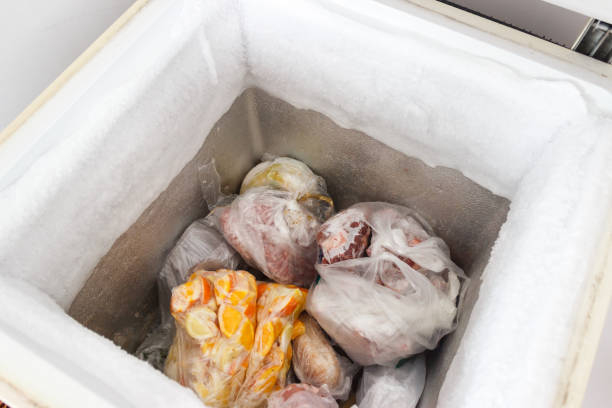
Foods aren't properly stored and have freezer burn -
When it comes to thawing frozen food, many of you rely on your microwave's defrost function. However, it is not always the best or healthiest option. Using the defrost option in the microwave not only does not always fully cook your food, but it can also ruin the taste of what you are attempting to thaw. You want your food to thaw evenly, but doing so this way can have the opposite effect.
Food may begin to thaw along the edges, but the center may take much longer. When it comes to thawing frozen meats, this can be tricky. If you plan to thaw meat using the defrost button, make sure to cook it immediately after it has thawed. This will help ensure that no bacteria grow in the food, which can cause food-borne illness and make you sick.
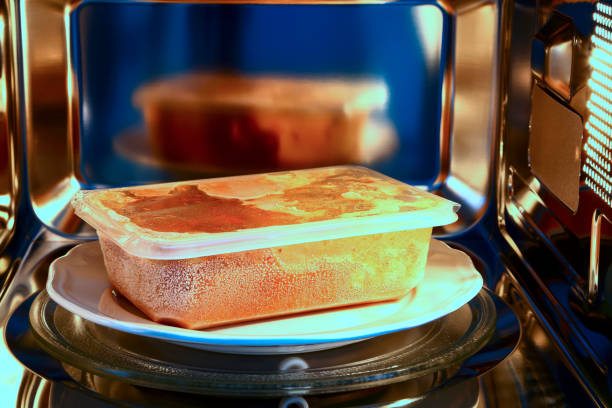
Defrosting in the microwave 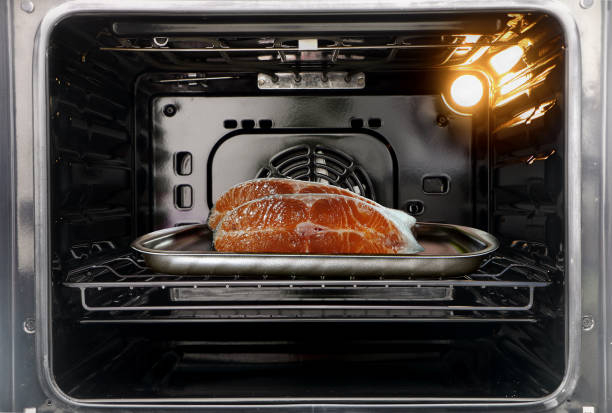
Defrosting in the microwave -
When it comes to your freezers, you tend to overfill them. This is because it is convenient to keep food on hand without worrying about it spoiling if you don't use it right away. One of the most common frozen food mistakes is failing to account for available freezer space.
You must have enough freezer space to store all of the foods you intend to store. You want everything to be secure and intact so that everything remains fully frozen and free of freezer burn. To save space in your freezer, pack food in flat freezer bags rather than bulky plastic containers, and divide items into serving sizes. Another way to ensure that everything fits in the freezer is to remove items from boxes, such as that ice cream cake you bought for a party, and instead wrap it in a freezer-safe bag.
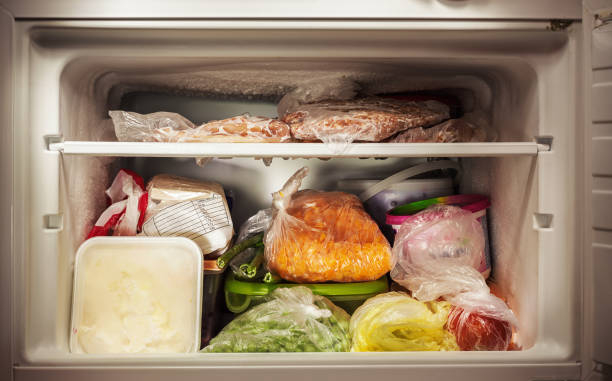
Not accounting for freezer space 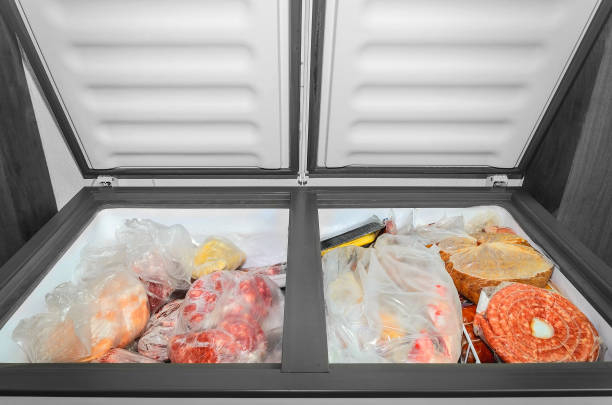
Not accounting for freezer space -
You might appreciate having frozen vegetables on hand to help you prepare a quick and healthy meal. While frozen vegetables are convenient, it can be difficult to master proper cooking techniques. Sure, it appears simple enough: simply steam your frozen peas in the microwave. Frozen vegetables, on the other hand, frequently come out soggy and lacking in flavor and texture.
Frozen vegetables don't need much time (or any time at all) to thaw before being cooked. When frozen vegetables thaw, their texture changes, which can cause them to become soggy if left out to defrost. Vegetables defrost quickly because they are much smaller and not as thick as meat. As a result, you can cook frozen vegetables while keeping the structure intact and avoiding a soggy, tasteless dish.
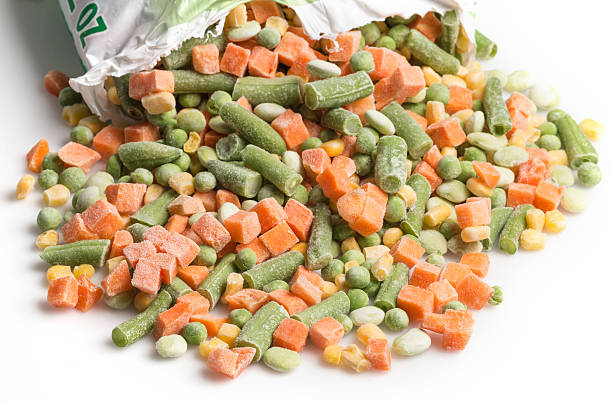
Not heating frozen veggies correctly 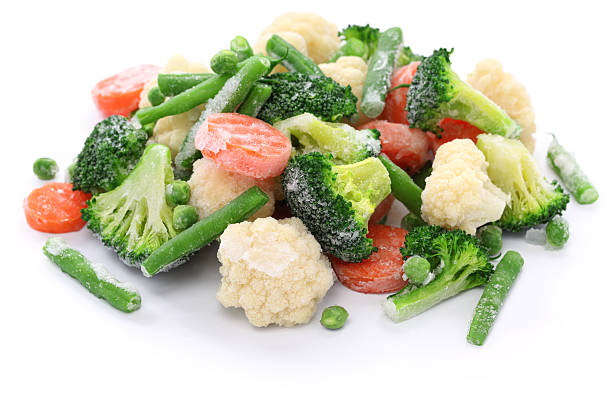
Not heating frozen veggies correctly -
Freezers are impressive pieces of equipment. Freezers can store meats, fresh pasta, and a variety of other items in addition to your favorite ice cream. While it's tempting to stock your freezer with anything and everything you don't intend to eat right away, some foods don't belong there. One of the most common mistakes with frozen food is putting the wrong items in the freezer.
According to Mashed, anything containing cornstarch, such as gravy, should not be frozen because it thaws out with a spongy texture rather than a smooth and creamy one. If you try to freeze eggs directly in their shells, they will crack, and frozen hardboiled eggs will come out rubbery when thawed. Milk and sour cream should never be frozen because the texture will become grainy once thawed.
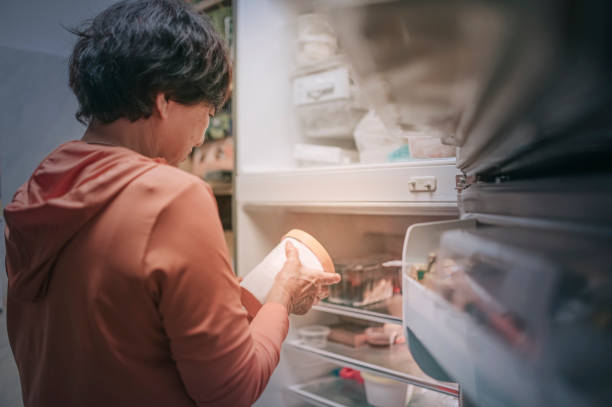
Freezing the wrong foods 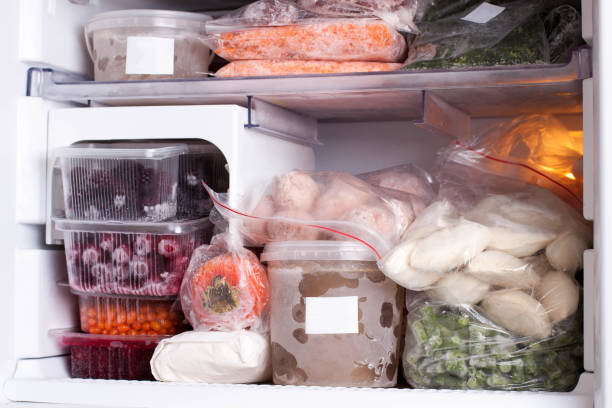
Freezing the wrong foods -
There are numerous reasons to freeze berries. Perhaps you want to keep your berries fresh for a healthy smoothie recipe, or you want to make sure you have them on hand once they're out of season. Berries can be frozen in either case. Simply freeze them in a single layer before placing them in a freezer bag.
When you're ready to use your frozen berries in a recipe, don't forget to blanch them first. According to WTOP News, immersing frozen berries in boiling water for a few minutes before allowing them to cool can help prevent food-borne illness while retaining the juicy, sweet, and tart flavors. This method is also necessary when freezing corn and tomatoes. Place both in a boiling water bath, then in an ice bath before putting them in the freezer.
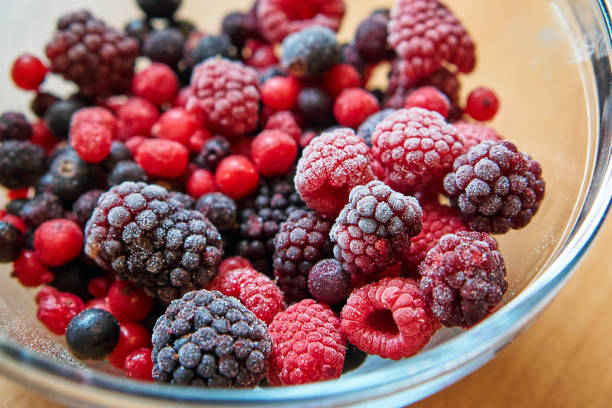
Not blanching frozen berries 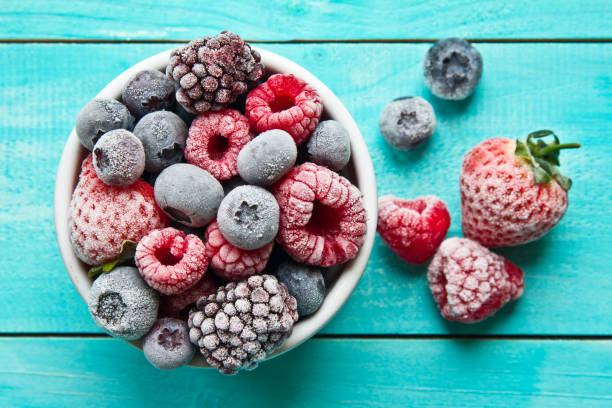
Not blanching frozen berries -
When cooking meat, you may believe you can tell when it's ready to eat simply by looking at it. That is most emphatically not the case. You have no idea if the meat is safe to eat unless you use a kitchen thermometer. The USDA recommends using this handy gadget when cooking frozen meats to avoid undercooking. Undercooked meat may contain bacteria and be unsafe to consume.
A kitchen thermometer will tell you when the meat has reached the proper internal temperature and will help provide the best overall flavor and texture for optimal enjoyment. To get the most accurate reading, place the thermometer in the thickest part of the meat. Always avoid the bone when cooking any type of meat.
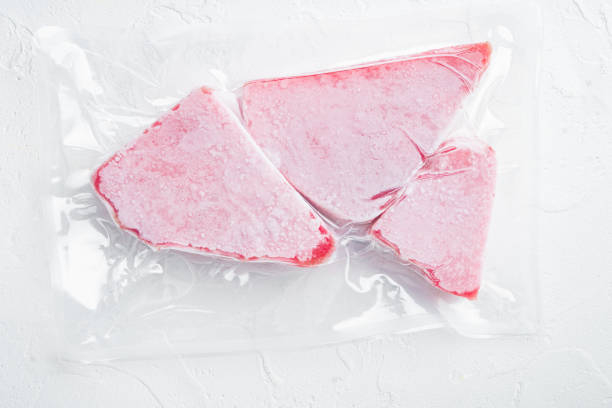
Not using a kitchen thermometer on frozen meats 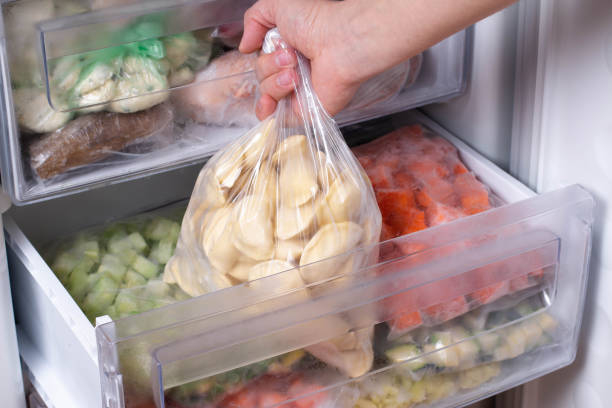
Not using a kitchen thermometer on frozen meats -
When you open your freezer and see that your food appears to be frozen, you may believe that everything is fine. However, not all temperatures are appropriate for your freezer, and if you don't keep it cold enough, you risk spoiling the food that is packed and stored inside its frosty chambers.
According to the FDA, your freezer should be set to 0 degrees Fahrenheit to keep food safe while preventing the growth of harmful bacteria. It's critical to use appliance thermometers to check the freezer's temperatures on a regular basis to ensure it stays at the proper temperature. Remember that if you lose power, you should always check to see if the temperature is still around 40 degrees Fahrenheit or less. If this is the case, your items are still safe to thaw, consume, or refreeze if necessary.
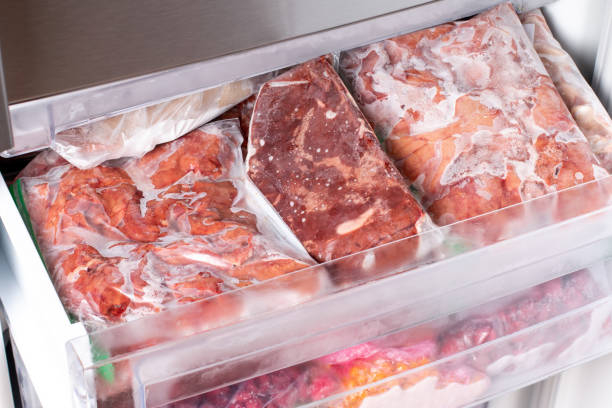
The freezer isn't cold enough 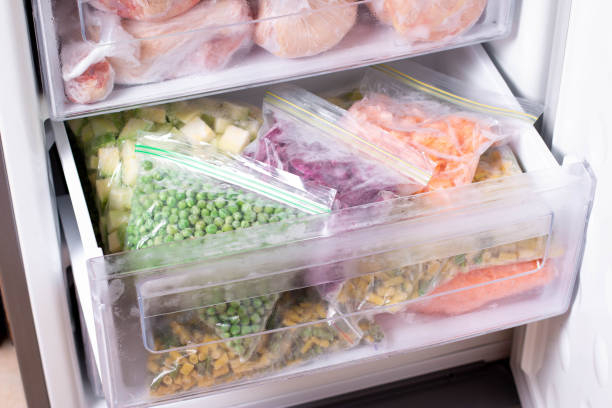
The freezer isn't cold enough -
When many of you think about freezing food, you probably don't always consider when you should do it. Instead, you may simply pack the freezer with any items you aren't using and consider yourselves done. Knowing when to put items in the freezer is critical for keeping your frozen food at its best. One of the most common frozen food mistakes is not freezing items right away. While you don't want to put anything in the freezer that is still very hot, you do want to put items in there as soon as possible.
According to the USDA, in order to keep items at their freshest when thawing, place them in the freezer as soon as possible. You are assisting in preserving the flavor and texture of the food. According to Mashed, fresh produce should not be overripe or underripe when placed in the freezer in order to retain flavor.
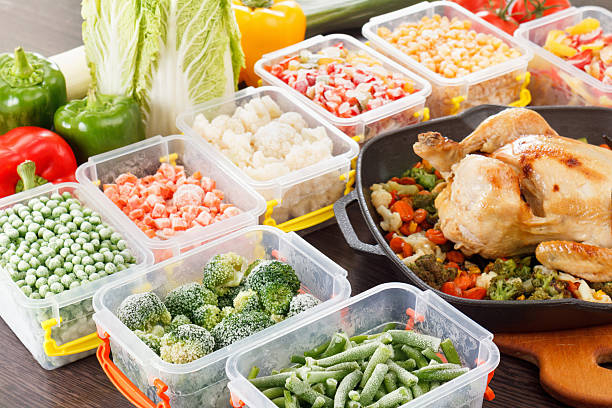
Not freezing food right away 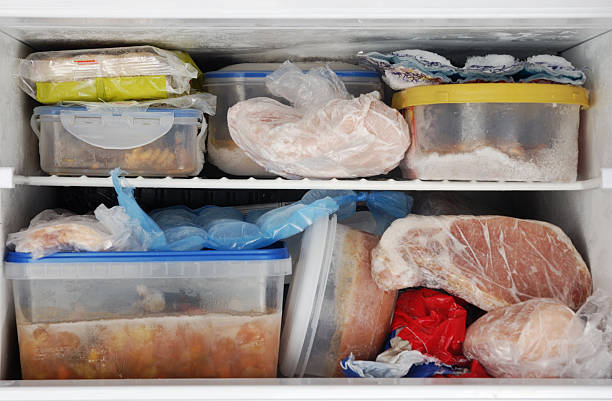
Not freezing food right away













